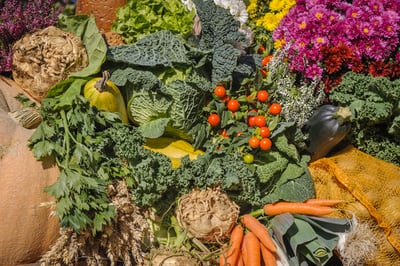
Keeping North Carolina Fed
North Carolina -- NC EDU: June 22, 2020As North Carolinians adjust to cooking more at home instead of going out to eat, Allen Boyette has an important message to share.
“There is not a broad food shortage in North Carolina or across our nation,” he says. “There is reduced variety, if you will — we may not be able to get exactly what we’re looking for, the type of chicken or the type of pork. Everybody must understand it’s not a crisis where we don’t have food right now, it’s just that you may not get it exactly how you want it.”
Boyette heads the Food Supply Chain Working Group, a panel of industry experts, members of the agricultural community and government officials the state brought together last month to address food production and distribution issues during the COVID-19 pandemic. The group is examining every angle of the subject, from farm to fork.
It’s not his area of expertise, but Boyette was approached for his leadership and organizational abilities, honed from years as senior director in the Facilities division at NC State and as a brigadier general in the North Carolina National Guard. His job is to establish priorities, facilitate cooperation and do his best to make sure the state stays fed. He has help from another member of NC State, Mike Yoder, associate director and emergency programs coordinator for NC State Extension.
“The group is phenomenally professional, and everybody wants to solve these challenges,” Boyette says. “It’s just sometimes hardest to figure out the best way to accomplish those tasks.”
In the Short Term
One of the first things the group realized was that demand for food from North Carolina’s at-risk population rose as the pandemic worsened. Remote learning means children can’t count on lunch at school. Job insecurity pushes more people to food banks. When grocery stores run out of products, elderly people and those with disabilities may find it harder to access food. The food supply chain group went to work to help charitable organizations, assessing each one on a case-by-case basis.
“Each group needed something a little bit different,” Boyette says. “Some groups are getting a lot more food in because donations are up, but they needed forklift operators. Then some places needed truck drivers to drive large tractor-trailers to pick up food and deliver it, and drive the refrigerated trucks.”
Luckily there’s a reliable source of help in times of domestic crisis: the National Guard. Hundreds of soldiers mobilized to provide assistance, says Boyette, who has served for 32 years.
Members of the North Carolina National Guard are stepping in to help food banks around the state now that volunteers aren’t available.
“That’s a resource with qualified truck drivers, qualified forklift operators and just people power that can come in and take care of some of these tasks to keep the food moving out to the folks,” he says. “That’s still ongoing at many of the food banks across the state and probably will be for several weeks.”
Boyette encourages people to reach out to their local food pantries to offer help, but he says mindful shopping habits will make a big difference.
“Talking to a lot of the industry experts in this, there’s not a shortage, but what creates a shortage is some overbuying of particular products,” he says. “You’ve seen it with the toilet paper and paper towels. Something will come on the market, and people will feel like they’ve got to get a grocery cart full of it, which then creates the issue. Let the system work itself out to get the product where it needs to be.”
Continue Reading https://www.northcarolina.edu/news/keeping-north-carolina-fed/


 How to resolve AdBlock issue?
How to resolve AdBlock issue? 